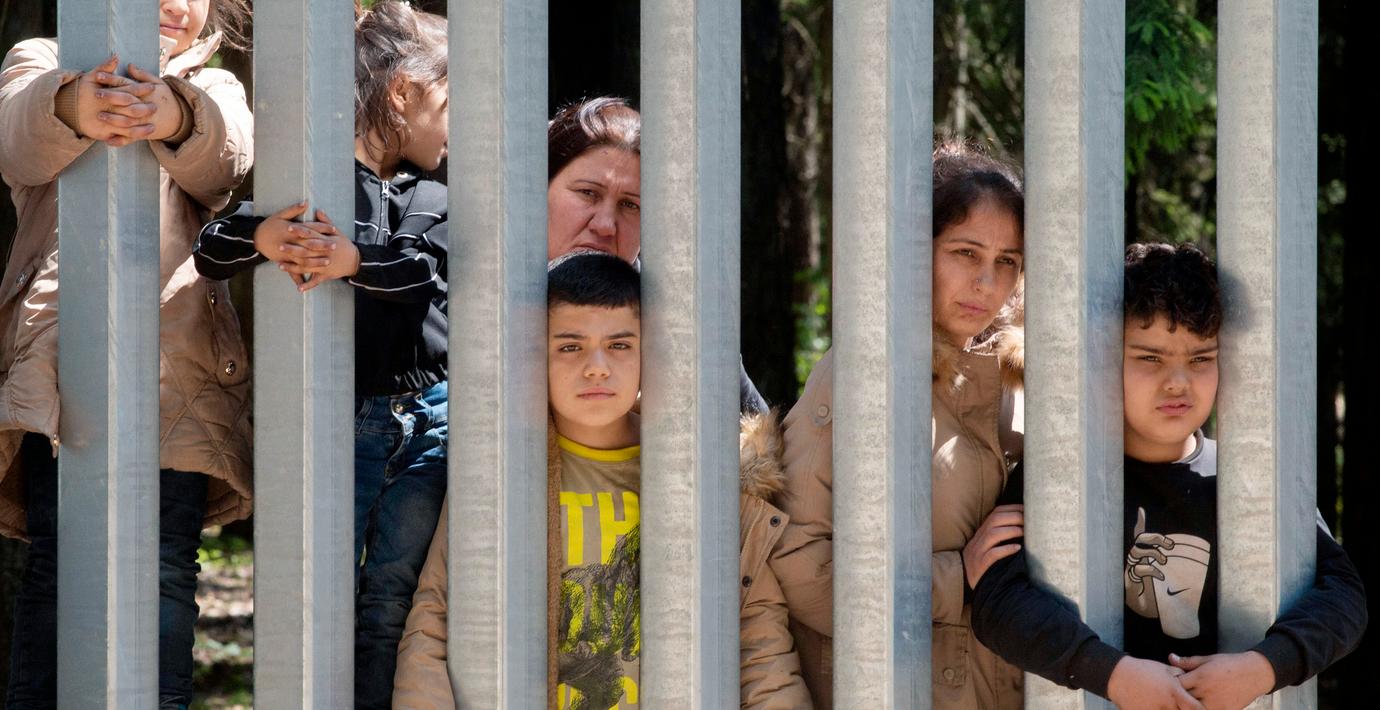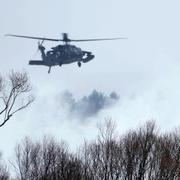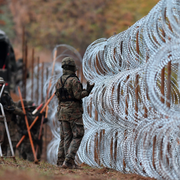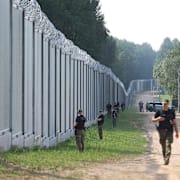
Polsk gränspolis: Belarus ger migranter bultsax och stege
Belarusiska gränsvakter ger migranter stegar och bultsaxar för att hjälpa dem ta sig över stängslet vid gränsen till Polen. Det säger den polska gränspolisen Krystyna Jakimik Jarosz till Ekot.
Hittills i år har den polska gränspolisen, enligt henne, gripit över 15 000 personer som försökt ta sig över gränsen från Belarus. Det är lika många som under hela förra året. Om det beror på det nya stängslet eller att fler försöker ta sig över är oklart.
Krystyna Jakimik Jarosz beskriver läget vid gränsen som det mest spända på länge och säger att det finns en oro för att soldater från Wagnergruppen ska hamna i Belarus.
bakgrund
Gränskrisen mellan EU och Belarus
Wikipedia (en)
The Belarus–European Union border crisis is a migrant crisis consisting of an influx of tens of thousands of immigrants, primarily from Iraq, with smaller groups hailing from elsewhere in the Middle East and from North Africa, to Poland, Lithuania and Latvia via those countries' borders with Belarus. The crisis was triggered by the severe deterioration in Belarus–European Union relations, following the 2020 Belarusian presidential election, the 2020–2021 Belarusian protests, the Ryanair Flight 4978 incident and subsequent sanctions on Belarus, as well as the attempted forced repatriation of Olympic sprinter Krystsina Tsimanouskaya from Tokyo, Japan.
The crisis began sometime around July 7, 2021, when Belarus's dictator Alexander Lukashenko threatened to "flood" the EU with "drugs and migrants". Later, Belarusian authorities and state-controlled tourist enterprises, together with some airlines operating in the Middle East, started promoting tours to Belarus by increasing the number of connections from the Middle East and giving those who bought them Belarusian visas, ostensibly for hunting purposes. Social media groups were additionally offering fraudulent advice on the rules of crossing the border to the prospective migrants, most of whom were trying to reach Germany. Those who arrived in Belarus were then given instructions about how and where to trespass the European Union (EU) border, and what to tell the border guards on the other side of the border. Migrants said that Belarus provided them with wire cutters and axes to cut through border fences and enter the EU; however, those who did not manage to cross the border were often forced to stay there by Belarusian authorities, who were accused of assaulting some migrants who failed to get across. Lukashenko later confirmed that the involvement of Belarusian border troops is "absolutely possible". Belarus refused to allow Polish humanitarian aid for the migrants, which would have included tents and sleeping bags.Poland, Lithuania, and Latvia have described the crisis as hybrid warfare, calling the crisis an incident of human trafficking of migrants, waged by Belarus against the EU. The three governments declared a state of emergency and announced their decisions to build border walls on their borders with Belarus, with Poland approving an estimated 1.6 billion zł in spending to build a barrier 5.5 meters high and 186 kilometers long. The EU sent additional supporting officers and patrol cars to Lithuania, and 12 EU governments stated their support for a physical barrier along the border. Lithuania completed the 502 km (312 mi) barrier in August 2022 and the modern surveillance equipment was installed by the end of the year.Human Rights Watch accused Belarusian authorities of manufacturing the crisis and state-level mass exploitation of migrants, making Belarusian border guards responsible for violence, inhuman and degrading treatment and use of coercion against migrants. Human rights organizations and academics voiced concerns over the use of migrant pushbacks by Lithuanian, Latvian and Polish border guards, the denial of the possibility to lodge an asylum claim, as well as inadequate food, water, and shelter for the migrants, the latter of which was a subject of a European Court of Human Rights (ECHR) order. Polish officials have additionally been criticised for not allowing journalists, doctors, and non-governmental organizations to the border. Simultaneously, human rights organisations have been criticized for downplaying the threat to the security of the countries under attack, unrealistic approach and offering no alternative but open borders.
Omni är politiskt obundna och oberoende. Vi strävar efter att ge fler perspektiv på nyheterna. Har du frågor eller synpunkter kring vår rapportering? Kontakta redaktionen



